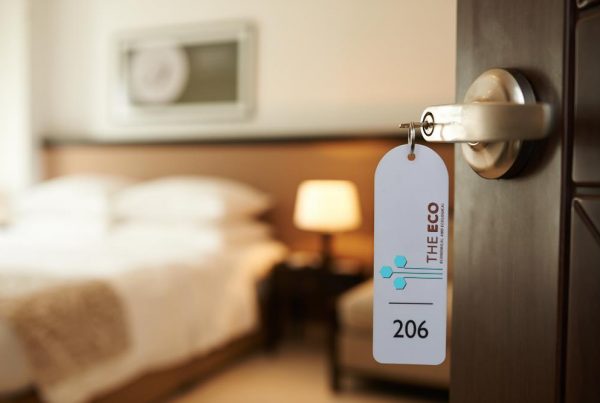Better Smart than Big: India’s Eco Hospitality Sector
The problem with global conglomerates is that they have global reach but monolithic thinking. Look how long it took Facebook to respond to high profile data breaches, with the hardly media shy Mark Zuckerberg virtually disappearing from the ubiquity of his own platform for weeks on end. Think of IBM: slow to the point of near extinction in responding to software innovations in the market, and poor old Kodak, slow to the point of actual extinction in meeting challenges posed by a blizzard of new, digital based technologies. So it should be a sobering thought for our current crop of global empire builders that big certainly doesn’t always best, because all too often great size comes with an inbuilt decision making stasis …in business, it’s always better to be smart.
Even so the thickest commercial hides can sometimes let in a little oxygen, which is why economists still like to look at the interesting conundrum of scaled decision making: big companies deluded into thinking they are fleet enough of foot to react on time to critical and fast moving trends, rather like an elephant finding a discarded pair of tweezers and thinking they must be good for something.
The latest example is Hilton Hotels, which this month unveiled its “Travel with Purpose Campaign” designed to reduce the group’s global carbon emissions by, wait for it, reusing old bars of soap left behind by its guests. Good luck with that: the Hilton Hotel chain on the subcontinent has properties with in excess of 1000 rooms pumping out as much carbon as a Victorian glue factory, so you might be forgiven for thinking the odd bar of soap is unlikely to make much of a difference. But the Hilton monolith is simply reacting (monolithically) to the unsurprising revelation that most of its guests are now placing environmental concerns at the top of their list when deciding where to stay. Hilton knows this because it conducted an expensive survey of 72,000 of its guests in May this year.
Of course it could have saved its hard earned cash and had a look instead at earlier newsletters on this site (amongst other places): sustainability concerns have been a key trend in the Indian Hospitality sector for at least the last decade and are becoming progressively more important. Hilton’s laborious, too little too late response is yet another example of big not being better. Big, in this case, is positively bad.
The companies that are instead best placed to make the most of eco trends are not operating out of densely occupied concrete blocks. They are strategically positioned in India’s mid market hospitality sector, with Lemon Tree Hotels and Eco Hotels being prime examples: smaller in scale and with sustainability ingrained into the fabric of their buildings (rather than in last minute memoranda urging staff to pick up discarded soap). As a result Lemon Tree Hotels is currently valued at 17 times EV/EBITDA and since completing its successful IPO in March of this year the company’s shares have risen in price by an impressive 28 per cent.
Both companies find themselves carried forward by a relentlessly upbeat market outlook, typical of which is JLL India: “The hospitality industry is witnessing a new buoyancy” and Anarock Capital, where Shobbit Agarwal had this to say: “Stocks of listed hotel companies are on a new high due to improving fundamentals increased occupancy levels, higher revenues and average room rates seeing 5 to 6 per cent year-on-year growth”.
Quite so, we don’t need an expensive survey to tell us that.
And it also has a great deal to do too with a recent surge in India’s domestic and overseas tourist numbers as well as an increasingly affluent middle class demographic prepared to put their money where their heart is…Hilton Hotels might take note.
Red Ribbon Asset Management is the founder of Eco Hotels, the world’s first carbon neutral mid market hotel brand, offering “green hospitality” as part of a progressive roll out across India which intended to take full advantage of current market opportunities on the subcontinent. The brand offers sustainable living without compromising on standards of hospitality and is designed to cater to commercial and recreational travellers alike.
[nectar_btn size="large" open_new_tab="true" button_style="regular" button_color_2="Accent-Color" icon_family="none" url="https://ecohotels.in/ordinary_shares" text="Invest in Pre-IPO opportunity in Eco Hotels UK Plc"]
Red Ribbon CEO, Suchit Punnose said:
I’ve always believed in the essential flexibility and virtue of smaller business platforms, capable of responding quickly and effectively to market opportunities as well as medium term market trends. Because, to paraphrase Keynes, over the medium term a business that finds itself rooted in a fixed strategy can also all to often find itself dead. Just look at the object lesson provided by the once all powerful Kodak Corporation.
And the sheer pace of change and market innovation in the subcontinent’s hotel and hospitality sector at the moment makes that lesson all the more compelling. Mid market groups like Lemon Tree Hotels and Eco Hotels are quite simply better placed to respond successfully to rapid innovation and key demographic changes. Not least because they have both been positioned from the outset to anticipate a sustained and progressive move towards sustainability based tourism and business travel. Sustainability is built into their DNA.
That’s why I’m particularly proud of the part Red Ribbon has played in founding Eco Hotels and helping with its strategic development, anticipating exciting developments in Indian markets capable of generating above market rate returns for our investors. So, whilst like the Hilton Group, I’m sure Eco Hotels will be encouraging guests not to waste soap, the company has a lot more to offer in the future.
[social_buttons full_width_icons="true" facebook="true" twitter="true" google_plus="true" linkedin="true" pinterest="true"]








Leave a Reply